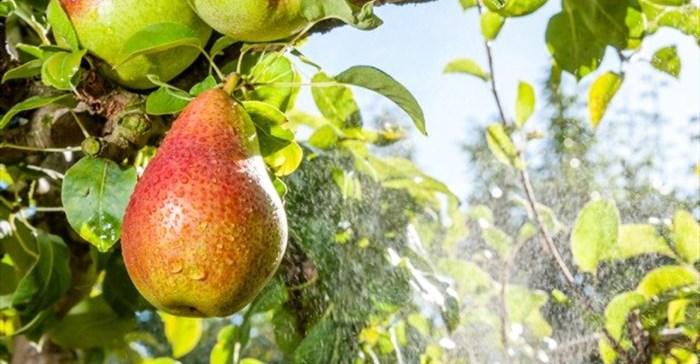Proving the old adage of "'n boer maak 'n plan" (a farmer makes a plan) true, Ceres fruit growers have adjusted farming practices after experiencing drought and extremely high temperatures during the 2016 season. Projections are that they will have sufficient water to properly irrigate crops in 2017 despite ongoing water shortages, according to De Kock Hamman, technical advisor to Ceres Fruit Growers.
“A number of water-saving practices were put in place last year which has already demonstrated benefits”, he says adding that “irrigation has become more scientific than ever before with a greater emphasis on measurement before and after watering. We now measure the soil moisture with probes and drills and we use shared satellite-based technology like Fruitlook to better identify dry spots. We also replaced sprinkler systems to water 10,000m³/ha and a micro system that waters 7,000 m³/ha and checked after watering for optimal irrigation with almost no run-off.”
Hamman explains that the increase in testing of things like soil holding capacity and adjusting watering according to soil type has made a difference as did removing alien invasive species and the mulching of the areas around the trees to trap in moisture and protect the soil from overheating.
Improved orchard management
“Generally speaking we have improved orchard management practices and are relying on better weather station information to aim for optimal irrigation with minimum waste,” he ends.
According to Tru-Cape Fruit Marketing, growers are also carefully considering their selection of early versus late apple and pear varieties as the late varieties require longer periods of summertime irrigation. Managing Director Roelf Pienaar says, “Our growers are better planning their crops so that they balance the availability of fruit all year around with the amount of water needed to irrigate for longer periods.
“Tru-Cape growers are always investigating new varieties that are, for example, scab resistant, a pest that contributes to quality-related claims following packing. We are also very excited about the new red gala apple that we’re calling Bigbucks for now but hope to have a trade name to announce to the public soon,” Pienaar ends.





































